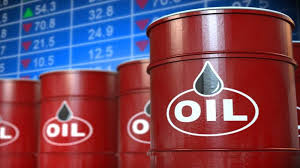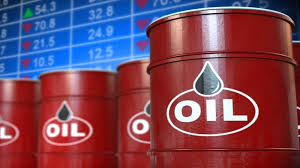
While there is still time for a complete recovery from the sudden and very steep oil price fall in 2014 for oil exporters, such entities should not therefore invest in "white elephant projects", warned the head of the IMF on Saturday.
"With revenues down, fiscal deficits are only slowly declining, despite significant reforms on both the spending and revenue sides, including the introduction of VAT and excise taxes," Christine Lagarde, the managing director of the IMF, said at a conference in Dubai. "This has led to a sharp increase in public debt, from 13 per cent of GDP in 2013 to 33 per cent in 2018," she said.
The measures taken by many countries to engage a shift from petroleum to renewable energy sources if reflected in the uncertainty in the growth outlook for oil exporting countries, Lagarde said. She added that this shift is also in line with the target set on climate change in the Paris climate summit.
Laragde said that because some of the weaknesses in the Middle East is because of "short-termism and insufficient credibility", therefore it is possible to improve fiscal frameworks there. This can also lead to a propensity of governments in the region to accord more focus on investing in white elephant projects in place of making investments in people and productive potential.
The largest economy of the Middle East, Saudi Arabia, plans to make huge investments in three very large projects, which includes a US$500 billion economic zone called NEOM, as was announced by the Crown Prince of the kingdom Mohammed bin Salman. The sovereign wealth fund, the Public Investment Fund, of Saudi Arabia is supporting the projects.
Direct financing of projects by sovereign wealth funds is common in the Middle East in a manner that such investments bypass the normal budget process, said Lagarde. At the same time, high levels of debts outside of the budget can be seen as a tendency in come of the state-owned enterprises in some countries in the region, she said.
Making use of fiscal rules to protect priorities like spending on social issues form commodity price volatility, as is being used by other resource-rich countries such as Chile and Norway, can be examples for countries in the Middle East and other oil exporting countries, she said.
She further said that while there has been some growth in the economy in the oil producing and exporting countries in the Middle East region, it is still to reach the growth rate that the countries had registered before the global financial crisis.
A global recession is not being anticipated in the mid-term by the IMG, said Lagarde speaking about the global economy, she however added that there were risks that could potentially severely impact global growth which includes trade tensions and tightening financial conditions.
The IMF has brought down its estimates for growth of the global economy this year pegging it at 3.5 per cent which is lower by 0.2 per cent compared to what it had predicted in October last year.
"Unsurprisingly, a weaker global environment has knock-on effects on the region through a variety of channels - trade, remittances, capital flows, commodity prices, and financing conditions," she said.
(Source:www.channelnewsasia.com)
"With revenues down, fiscal deficits are only slowly declining, despite significant reforms on both the spending and revenue sides, including the introduction of VAT and excise taxes," Christine Lagarde, the managing director of the IMF, said at a conference in Dubai. "This has led to a sharp increase in public debt, from 13 per cent of GDP in 2013 to 33 per cent in 2018," she said.
The measures taken by many countries to engage a shift from petroleum to renewable energy sources if reflected in the uncertainty in the growth outlook for oil exporting countries, Lagarde said. She added that this shift is also in line with the target set on climate change in the Paris climate summit.
Laragde said that because some of the weaknesses in the Middle East is because of "short-termism and insufficient credibility", therefore it is possible to improve fiscal frameworks there. This can also lead to a propensity of governments in the region to accord more focus on investing in white elephant projects in place of making investments in people and productive potential.
The largest economy of the Middle East, Saudi Arabia, plans to make huge investments in three very large projects, which includes a US$500 billion economic zone called NEOM, as was announced by the Crown Prince of the kingdom Mohammed bin Salman. The sovereign wealth fund, the Public Investment Fund, of Saudi Arabia is supporting the projects.
Direct financing of projects by sovereign wealth funds is common in the Middle East in a manner that such investments bypass the normal budget process, said Lagarde. At the same time, high levels of debts outside of the budget can be seen as a tendency in come of the state-owned enterprises in some countries in the region, she said.
Making use of fiscal rules to protect priorities like spending on social issues form commodity price volatility, as is being used by other resource-rich countries such as Chile and Norway, can be examples for countries in the Middle East and other oil exporting countries, she said.
She further said that while there has been some growth in the economy in the oil producing and exporting countries in the Middle East region, it is still to reach the growth rate that the countries had registered before the global financial crisis.
A global recession is not being anticipated in the mid-term by the IMG, said Lagarde speaking about the global economy, she however added that there were risks that could potentially severely impact global growth which includes trade tensions and tightening financial conditions.
The IMF has brought down its estimates for growth of the global economy this year pegging it at 3.5 per cent which is lower by 0.2 per cent compared to what it had predicted in October last year.
"Unsurprisingly, a weaker global environment has knock-on effects on the region through a variety of channels - trade, remittances, capital flows, commodity prices, and financing conditions," she said.
(Source:www.channelnewsasia.com)





